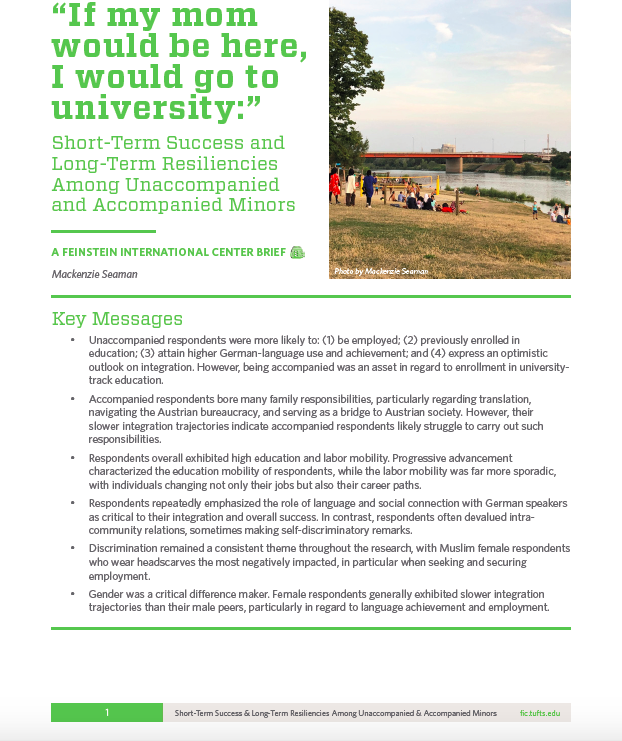Between 2013 and 2017, 38 percent of the asylum applicants in Austria were minors, with roughly one-third considered older minors (i.e. arrived between 14 and 17 years of age). Grappling with the social and legal transformations accompanying their entrance into adulthood, many of these older minors are also navigating the integration process. This study examined the integration experiences of protected persons in Vienna, Austria who arrived as unaccompanied and accompanied asylum-seeking older minors. The study investigated their integration in three domains: the labor market (employment, education, outlook on labor market), social connections (language, connections with individuals, connections with organizations), and outlook on integration. The study asked: Does being unaccompanied or accompanied impact minors’ integration paths? Their resiliency?
Unaccompanied respondents exhibited higher levels of “success” regarding employment, education, language, and social connections with individuals, as well as greater optimism regarding outlook on the labor market and integration overall. The faster integration trajectory of unaccompanied respondents compared to their accompanied counterparts is directly linked to their perceived vulnerabilities. Unaccompanied respondents are able to transform these vulnerabilities into a resiliency—i.e., they have fewer familial obligations and they receive different legal and social treatments upon arrival in Austria. Given that some short-term survival strategies may breed fewer long-term successes (such as prioritizing employment over higher education), the greater integration “success” achieved by unaccompanied respondents compared to their accompanied peers may not mean a similar advantage in the future.
The capstone based on this study is available here.







